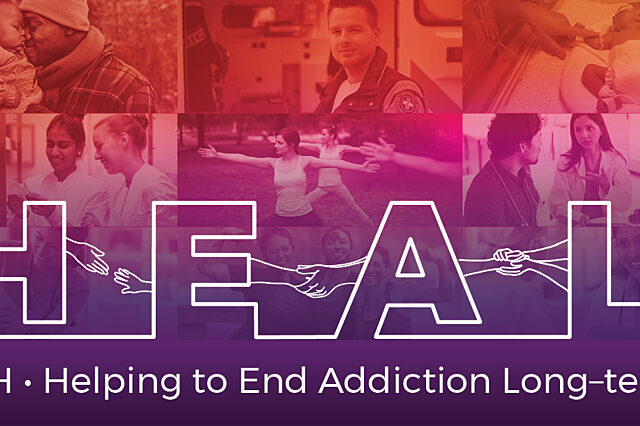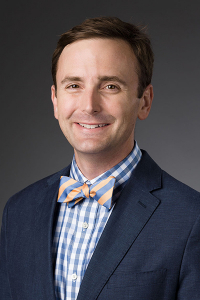UF Health researchers receive NIH grants to help combat the opioid crisis


For more information, please contact: Diana Tonnesseen at dtonn@ufl.edu or 352-294-5972.
UF researchers are poised to help some of the youngest and most vulnerable of those affected by the nation’s opioid crisis: babies and children of mothers who use opioids during pregnancy.
A multidisciplinary team of UF faculty from the colleges of Medicine, Public Health and Health Professions, Law, and Education, along with numerous state partners, have received an 18-month, $514,688 grant from the National Institutes of Health to help plan a large, long-term national study on the effects of prenatal exposure to opioids and other substances on brain development and behavioral health in young children.
The national study, known as the HEALthy Brain and Child Development Study, or HEALthy BCD, is part of the NIH HEAL Initiative. Launched in 2018, the initiative aims to improve prevention and treatment strategies for opioid misuse and addiction and enhance pain management.
“It’s clear that a multipronged scientific approach is needed to reduce the risks of opioids, accelerate development of effective nonopioid therapies for pain and provide more flexible and effective options for treating addiction to opioids,” said NIH Director Francis S. Collins, M.D., Ph.D. “This unprecedented investment in the NIH HEAL Initiative demonstrates the commitment to reversing this devastating crisis.”
UF’s HEALthy BCD award, led by Matthew Gurka, Ph.D., a professor and associate chair of the UF College of Medicine’s department of health outcomes and biomedical informatics and associate director of UF’s Institute for Child Health Policy, is one of 375 NIH HEAL grant awards totaling $945 million across 41 states made by the NIH in fiscal year 2019 to apply scientific solutions to reverse the national opioid crisis.
Researchers in the UF College of Pharmacy and the College of Medicine’s department of anesthesiology also received NIH HEAL awards to fund projects focused on curbing the rates of opioid use disorder and overdose (pharmacy) and improving treatments for chronic pain (anesthesiology).
The goal of the HEALthy BCD study is to establish a large group of pregnant women and their children across the country, particularly in regions hardest hit by the opioid crisis. The researchers will monitor the growth and development of the children for at least 10 years, with the goal of better understanding childhood brain development and the long-term impacts of prenatal exposure to opioids and other adverse events in early childhood.
Gurka said stressful events in early childhood can have deleterious effects on development and behavior. This stress can be the result of numerous exposures or events, including household dysfunction or instability, abuse or neglect.
“Given the scope of the opioid epidemic, trying to identify the effects of a single substance, such as opioids, on brain development, is crucial,” he said. “However, it is incredibly challenging to separate these effects from those of other stressors.”
Gurka also highlighted the importance of the study in identifying factors that may mitigate these adverse effects.
“We hope this study will identify characteristics of the child, family and their communities that provide resiliency to any harmful effects, which could lead to more effective intervention strategies,” he said.
According to the Centers for Disease Control and Prevention, the opioid epidemic has led to a dramatic rise in the number of children exposed to opioids during pregnancy or in early childhood. The resulting drug withdrawal in newborns is known as neonatal abstinence syndrome, or NAS. The CDC estimates that in 2014, one infant was born with NAS every 15 minutes due to exposure to opioids during pregnancy.
Gurka said his Florida-based multidisciplinary team will work with other teams nationwide to develop strategies for the successful implementation of this long-term study.
Gurka’s team plans to build on UF’s 2017 Early Childhood National Summit, convened by UF’s Anita Zucker Center for Excellence in Early Childhood Studies and other colleges, centers and institutes across the UF campus. The summit brought together more than 100 scholars, policy makers, advocates, philanthropists and practitioners from around the country to create actionable ideas and steps to further early childhood development and learning. Gurka holds a joint faculty appointment with the Anita Zucker Center.
Gurka’s research team plans to host an additional summit for its NIH-funded HEAL project, the Florida-Development in Early Childhood: Adversity and Drug Exposure (FL-DECADE) Study. The researchers will convene families, advocates, legal scholars, ethicists, health care providers and other professionals to explore some of the legal and ethical issues and other potential barriers to recruiting study participants for this groundbreaking research. They will also conduct focus groups among pregnant women and mothers of young children to identify barriers to and incentives for long-term participation in the planned study.
“We will focus on how to mitigate risks and maximize benefits for children and families recruited to the study,” Gurka said.
The team will assess the feasibility of using the OneFlorida Clinical Research Consortium, a statewide partnership of academic institutions, hospitals, clinics and providers, to recruit women and high-risk children for the study. The consortium’s 11 academic institutions and health systems provide care for about 74% of Floridians in all 67 counties.
In addition to OneFlorida, the FL-DECADE study team plans to expand their connections with multiple community partners across the state, and to develop other innovative recruiting strategies to try to reach women who use opioids.
Recruiting participants from Florida’s large and diverse population through a variety of approaches, including OneFlorida and community partners across the state, would help ensure that hard-to-reach populations are included in the study, including minority and ethnic groups and people who live in rural areas, Gurka said.
“We hope a diverse study population will further aid in our understanding on how prenatal exposure to opioids, and adverse events in general, impact child development.”
The two other UF Health research teams to receive NIH HEAL awards this year include:
- Lance McMahon Jr., Ph.D., chair and a professor of the department of pharmacodynamics at the UF College of Pharmacy, and Christopher R. McCurdy, Ph.D., director of the UF Clinical and Translational Research Institute’s Translational Drug Development Core and a professor in the department of medicinal chemistry in the UF College of Pharmacy, who will lead research at UF to explore novel medication options for opioid use disorder and overdose.
- Rene Przkora, M.D., Ph.D., a professor in the UF College of Medicine’s department of anesthesiology, division chief of pain medicine and fellowship director of the multidisciplinary pain medicine fellowship program at UF, and Patrick J. Tighe, M.D., M.S., an associate professor of anesthesiology, who will lead efforts at UF to develop alternative methods of treating acute and chronic pain to reduce the reliance on opioids for pain management.
- Department of Anesthesiology
- Department of Health Outcomes & Biomedical Informatics
- Department of Pharmaceutical Outcomes and Policy
- Institute for Child Health Policy
- Clinical and Translational Science Institute
- College of Medicine
- College of Pharmacy
- College of Public Health and Health Professions
- UF Health
- University of Florida